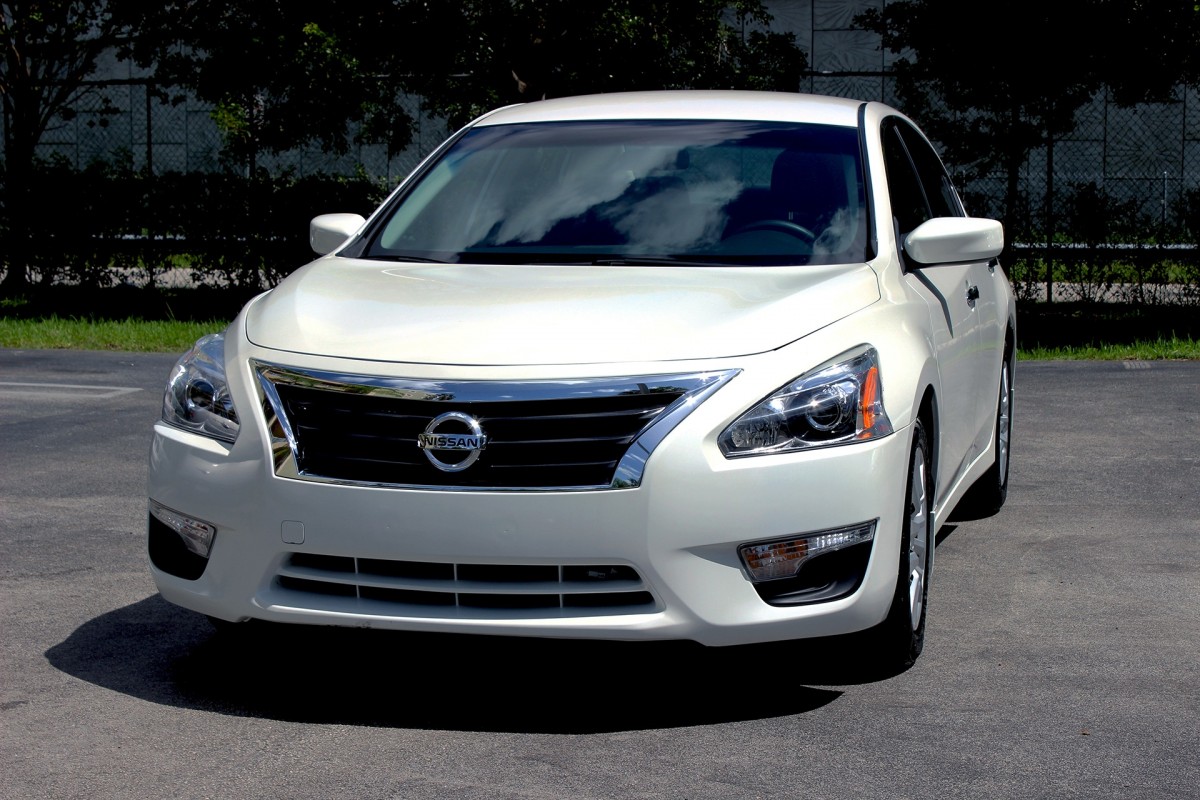The automotive landscape has undergone a remarkable transformation over the past decade, with hybrid technology emerging as the undisputed champion in consumer preferences. As we navigate through 2025, the dominance of hybrid vehicles in the marketplace isn’t just a passing trend—it represents a fundamental shift in how buyers approach vehicle ownership, environmental responsibility, and long-term value retention.
The Hybrid Revolution: Understanding Consumer Migration
The transition toward hybrid technology represents more than a simple preference change; it embodies a calculated response to multiple economic, environmental, and practical considerations that modern vehicle buyers face. Today’s consumers are remarkably well-informed, researching extensively before making purchase decisions, and their conclusions increasingly point toward hybrid solutions as the optimal balance between traditional combustion engines and fully electric alternatives.
Market data reveals a stunning trajectory for hybrid vehicle adoption. Sales figures from the first three quarters of 2025 demonstrate unprecedented growth, with hybrid models capturing nearly 35% of all new vehicle sales in major markets. This represents a staggering 200% increase compared to just five years ago, when hybrids occupied a modest niche position.
What drives this remarkable surge? The answer lies in a convergence of factors that align perfectly with contemporary consumer priorities. Buyers today seek vehicles that deliver exceptional fuel economy without compromising performance, require minimal lifestyle adjustments, and provide tangible long-term savings. Hybrid technology checks all these boxes while addressing range anxiety—the persistent concern that plagues fully electric vehicle ownership.
Financial Advantages Driving Hybrid Adoption

Cost considerations remain paramount in vehicle purchasing decisions, and hybrid technology delivers compelling financial benefits that resonate strongly with budget-conscious consumers. The economic case for hybrid ownership extends far beyond the initial purchase price, encompassing fuel savings, maintenance costs, insurance premiums, and resale value.
A. Fuel Economy That Transforms Monthly Budgets
Hybrid vehicles routinely achieve fuel economy figures that seem almost impossible by traditional standards. Modern hybrid sedans commonly deliver 50-60 miles per gallon in combined city and highway driving, while hybrid SUVs—traditionally fuel-hungry vehicles—now achieve 35-45 MPG. These numbers translate directly into substantial monthly savings.
Consider a typical driver covering 15,000 miles annually. In a conventional vehicle averaging 25 MPG, this requires 600 gallons of fuel yearly. At current fuel prices averaging $3.50 per gallon, annual fuel costs reach $2,100. Compare this to a hybrid achieving 50 MPG, requiring just 300 gallons yearly, costing $1,050. The hybrid owner saves $1,050 annually—money that accumulates significantly over a typical seven-year ownership period.
B. Maintenance Expenses That Surprise Owners
Contrary to popular misconceptions, hybrid vehicles don’t impose higher maintenance costs. In fact, several aspects of hybrid design actually reduce maintenance requirements and expenses. Regenerative braking systems significantly extend brake pad and rotor life, often doubling their service intervals. The electric motor assists the gasoline engine, reducing wear and stress on traditional mechanical components.
Modern hybrid batteries come with extensive warranty coverage, typically 8-10 years or 100,000-150,000 miles, alleviating concerns about expensive replacement costs during primary ownership periods. Battery technology has advanced remarkably, with current generation units demonstrating excellent longevity and minimal degradation even after 200,000 miles of service.
C. Insurance Premiums Reflecting Lower Risk
Insurance companies have recognized that hybrid owners tend to be more cautious drivers, and hybrid vehicles themselves often incorporate advanced safety technologies. This combination results in competitive insurance premiums, with many insurers offering specific discounts for hybrid and eco-friendly vehicles. These savings, while perhaps modest individually, contribute meaningfully to the total cost of ownership equation.
D. Resale Value Retention Exceeding Expectations
Perhaps one of the most underappreciated financial advantages of hybrid ownership is exceptional resale value retention. As hybrid technology becomes mainstream and fuel prices remain volatile, used hybrid vehicles command strong market prices. Three-year-old hybrid models routinely retain 60-65% of their original value, outperforming comparable conventional vehicles by 10-15 percentage points.
Environmental Consciousness Meets Practical Transportation

Today’s vehicle buyers increasingly consider environmental impact as a significant factor in their purchasing decisions. However, unlike previous generations who might have sacrificed convenience for environmental principles, modern consumers demand solutions that honor both ecological responsibility and practical usability. Hybrid technology satisfies this dual requirement perfectly.
A. Emissions Reductions Without Compromise
Hybrid vehicles achieve substantial reductions in greenhouse gas emissions compared to conventional vehicles, typically cutting CO2 emissions by 35-50% depending on driving patterns and vehicle size. For environmentally conscious consumers, this represents meaningful progress toward personal sustainability goals without requiring the significant lifestyle adjustments that fully electric vehicles might demand.
Urban driving, where hybrids excel most dramatically, sees even more impressive emissions reductions. In stop-and-go traffic, hybrids can operate extensively in electric-only mode, producing zero direct emissions while conventional vehicles idle inefficiently. This capability makes hybrids particularly attractive to city dwellers who experience daily commutes in congested metropolitan areas.
B. Resource Efficiency Beyond the Tailpipe
Environmental considerations extend beyond operational emissions to encompass the entire vehicle lifecycle. Hybrid vehicles achieve better overall resource efficiency, consuming less fuel throughout their operational life while utilizing battery technology that has become increasingly sustainable in both production and end-of-life recycling.
The automotive industry has made tremendous strides in developing closed-loop recycling programs for hybrid batteries, ensuring that valuable materials are recovered and reused rather than discarded. This circular economy approach addresses previous concerns about battery disposal and positions hybrid technology as genuinely sustainable rather than merely shifting environmental impacts elsewhere.
Technology Integration Attracting Tech-Savvy Buyers
Modern hybrid vehicles serve as rolling technology showcases, incorporating cutting-edge innovations that appeal strongly to tech-savvy consumers who expect their vehicles to match their digital lifestyles. The integration of hybrid powertrains has coincided with broader technological advancement across the automotive sector, creating vehicles that feel genuinely futuristic.
A. Sophisticated Powertrain Management Systems
Contemporary hybrid systems employ incredibly sophisticated computer management, seamlessly orchestrating power delivery between electric motors and gasoline engines. These systems optimize performance, efficiency, and responsiveness in real-time, making thousands of calculations per second to deliver the ideal power blend for current driving conditions.
Drivers rarely notice these complex operations—the system works invisibly in the background, automatically selecting electric-only operation when appropriate, engaging the gasoline engine when needed, and capturing energy during braking. This transparency represents the pinnacle of engineering achievement, where advanced technology enhances the experience without requiring user intervention or expertise.
B. Connectivity Features Setting New Standards
Hybrid vehicles frequently serve as platforms for advanced connectivity features, offering comprehensive smartphone integration, remote climate control, charging status monitoring, and detailed efficiency analytics. Owners can review their driving patterns, compare fuel economy across trips, and optimize their habits for maximum efficiency—all through intuitive mobile applications.
These digital features transform the ownership experience, providing transparency and control that previous generations of vehicles never offered. For consumers accustomed to data-driven decision-making in other aspects of their lives, this visibility and control over vehicle performance and efficiency feels natural and empowering.
Performance Capabilities Defying Expectations
A persistent myth surrounding hybrid vehicles suggests they sacrifice performance for efficiency. Modern hybrid technology thoroughly demolishes this misconception, delivering performance characteristics that often exceed conventional vehicles while simultaneously achieving superior fuel economy.
A. Instant Torque Transforming Acceleration
Electric motors deliver maximum torque instantly, from zero RPM, providing hybrid vehicles with surprisingly vigorous acceleration. This characteristic proves particularly advantageous in real-world driving scenarios—merging onto highways, navigating city traffic, passing slower vehicles—where immediate throttle response matters most.
Performance-oriented hybrid models harness this electric torque advantage to deliver truly impressive acceleration figures. Several hybrid sedans now achieve 0-60 MPH times under six seconds while maintaining fuel economy exceeding 40 MPG—a combination that seemed impossible just a decade ago.
B. Handling Dynamics Benefiting from Design
Hybrid vehicles often position battery packs low in the chassis, lowering the center of gravity and improving handling dynamics. This design characteristic, combined with sophisticated traction management systems that can independently control power delivery to individual wheels, results in surprisingly engaging driving dynamics.
Luxury hybrid models particularly showcase these advantages, offering handling precision and road-holding capability that rivals dedicated sports sedans while providing the practical benefits of hybrid efficiency during normal driving.
Infrastructure Compatibility Eliminating Barriers
Perhaps the most pragmatic advantage hybrid technology offers is complete infrastructure compatibility. Unlike fully electric vehicles, which require access to charging stations and involve range planning for longer trips, hybrids operate seamlessly within existing infrastructure. This transparency to infrastructure requirements eliminates a major adoption barrier that continues to slow electric vehicle acceptance.
A. No Charging Infrastructure Required
Hybrid owners enjoy complete freedom from charging anxiety. Standard hybrids require no external charging whatsoever—they’re simply refueled at conventional gas stations exactly like traditional vehicles. Plug-in hybrid variants offer optional charging capability for extended electric range but don’t require it, providing flexibility that pure electric vehicles cannot match.
This infrastructure transparency proves particularly valuable for consumers without home charging capability—apartment dwellers, renters, or homeowners with limited electrical service. These buyers can embrace hybrid efficiency without needing to solve complex charging logistics or make expensive home electrical upgrades.
B. Unlimited Range for Long-Distance Travel
Hybrid vehicles eliminate range anxiety completely. With combined gasoline and electric operation, modern hybrids easily exceed 500-600 miles of total range, with refueling accomplished in minutes at any gas station. This capability makes hybrids ideal for road trips, vacation travel, and any journey where charging station availability might create inconvenience or anxiety.
For many buyers, this unlimited range capability represents the deciding factor between hybrid and electric. While electric vehicles work wonderfully for local driving with home charging, the added complexity and planning required for longer trips makes hybrids more practical for single-vehicle households or buyers who value spontaneity and flexibility.
Manufacturer Investment Expanding Choices
Automotive manufacturers have recognized consumer enthusiasm for hybrid technology and responded with massive investment and model expansion. Today’s hybrid market offers unprecedented choice across nearly every vehicle segment, from subcompact cars to full-size trucks, luxury sedans to rugged SUVs.
A. Segment Coverage Reaching Completeness
The breadth of hybrid offerings available in 2025 is truly remarkable. Virtually every popular vehicle segment now includes multiple hybrid options, allowing buyers to select hybrids that precisely match their needs, preferences, and lifestyles rather than compromising on body style or capability to access hybrid efficiency.
Truck buyers can now choose from several hybrid pickup models offering impressive towing capability alongside meaningful fuel economy improvements. SUV shoppers find hybrid options across compact, midsize, and full-size segments, including three-row models for larger families. Even sports car enthusiasts can access hybrid performance models that deliver electrifying acceleration while maintaining reasonable fuel consumption.
B. Competitive Pricing Accelerating Adoption
As production volumes increase and technology matures, hybrid pricing has become increasingly competitive with conventional vehicles. Many hybrid models now carry price premiums of just $2,000-3,000 compared to equivalent conventional versions—premiums that fuel savings recover within 2-3 years of ownership.
Some manufacturers even offer hybrid variants at price parity with conventional models, recognizing hybrid technology as the standard powertrain rather than a premium upgrade. This pricing evolution removes another historical barrier to hybrid adoption, making the decision to choose hybrid efficiency essentially consequence-free.
Government Incentives Sweetening Propositions
Many jurisdictions offer financial incentives, tax credits, or other benefits for hybrid vehicle purchases, further improving the economic case for hybrid adoption. While these incentives vary significantly by location, they can substantially reduce effective purchase prices and enhance ownership benefits.
A. Federal and State Tax Credits
In the United States, plug-in hybrid vehicles qualifying under federal criteria can receive tax credits up to $7,500, depending on battery capacity and manufacturer eligibility. State and local incentives may provide additional benefits, including rebates, reduced registration fees, or sales tax exemptions.
These incentives can transform the purchase economics dramatically, effectively eliminating any price premium for hybrid technology while delivering all the associated benefits. Buyers should research available incentives carefully, as eligibility requirements and benefit amounts change regularly.
B. Access Benefits and Fee Exemptions
Beyond direct financial incentives, many regions provide hybrid vehicles with valuable access benefits. High-occupancy vehicle (HOV) lane access, reduced toll fees, preferential parking, and exemptions from emissions-based driving restrictions can deliver ongoing convenience and cost benefits throughout ownership.
For commuters in congested metropolitan areas, HOV lane access alone can justify hybrid selection, saving countless hours annually while reducing stress and fuel consumption associated with stop-and-go traffic.
Future-Proofing Vehicle Investments
As the automotive industry continues its evolution toward electrification, hybrid technology represents a future-proof investment that positions owners advantageously for coming changes. Unlike conventional vehicles, which may face increasing regulatory pressure, limited resale markets, and technological obsolescence, hybrids bridge current and future automotive eras.
A. Regulatory Compliance Protecting Value
Many jurisdictions have announced increasingly stringent emissions regulations and eventual phase-outs of pure combustion vehicles. Hybrid vehicles, with their substantially lower emissions and partial electric operation, remain compliant with current regulations while positioning owners favorably for future requirements.
This regulatory resilience protects resale value and extends practical vehicle lifespan, allowing hybrid owners to maintain their vehicles longer without concern about regulatory restrictions limiting usability or marketability.
B. Technology Foundation for Future Electrification
Hybrid ownership provides valuable experience with electric propulsion technology, familiarizing owners with electric driving characteristics, regenerative braking, and efficiency optimization. This experiential knowledge makes future transitions to fully electric vehicles more comfortable and intuitive.
Additionally, the infrastructure and service networks developed to support hybrid technology directly translate to electric vehicle support, ensuring that owners who eventually transition to full electrification find well-established support systems rather than emerging, immature infrastructure.
Conclusion
Hybrid technology dominates buyer choices because it represents the optimal balance for contemporary vehicle ownership. It delivers impressive fuel economy and meaningful emissions reductions without requiring infrastructure investments or lifestyle adjustments. It provides strong performance and engaging driving dynamics while offering practical versatility and unlimited range. It maintains competitive pricing while delivering superior long-term value retention.
For today’s informed consumers weighing environmental responsibility against practical necessity, comparing total ownership costs against purchase prices, and evaluating technological sophistication alongside reliability, hybrid vehicles consistently emerge as the sensible choice. This isn’t compromise—it’s optimization. Hybrid technology delivers everything modern drivers need while eliminating the drawbacks that limit alternative powertrain solutions.
As the automotive industry continues evolving, hybrid technology stands as the mature, proven solution that satisfies current needs while positioning owners advantageously for future developments. The dominance of hybrid vehicles in consumer preferences isn’t surprising—it’s the logical outcome when sophisticated buyers evaluate their options comprehensively and choose the powertrain that delivers the best overall ownership experience.
The hybrid era has arrived, and it’s here to stay.











